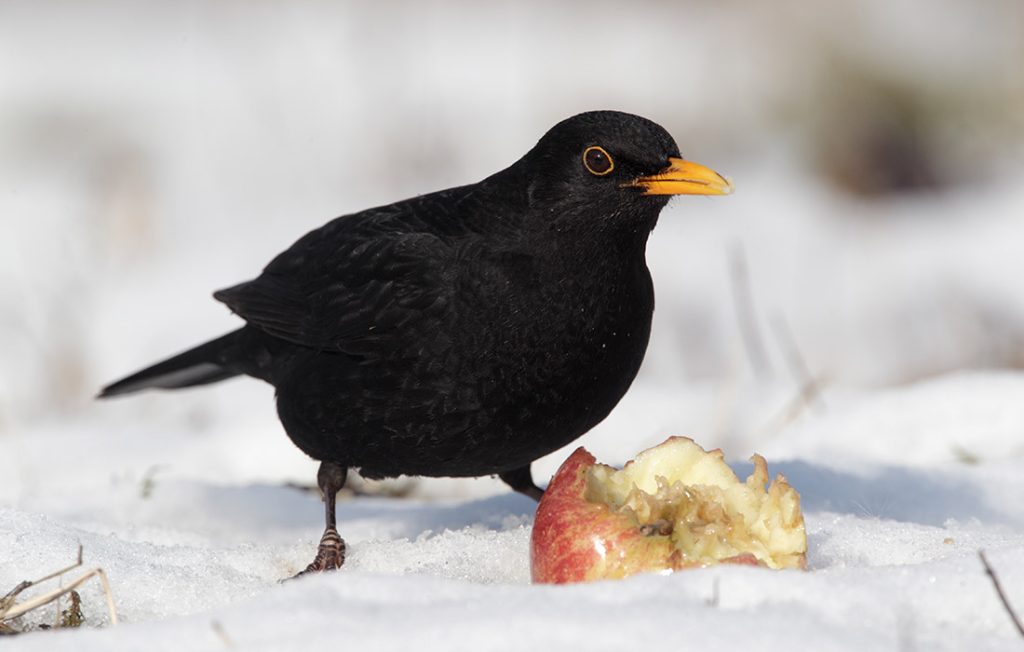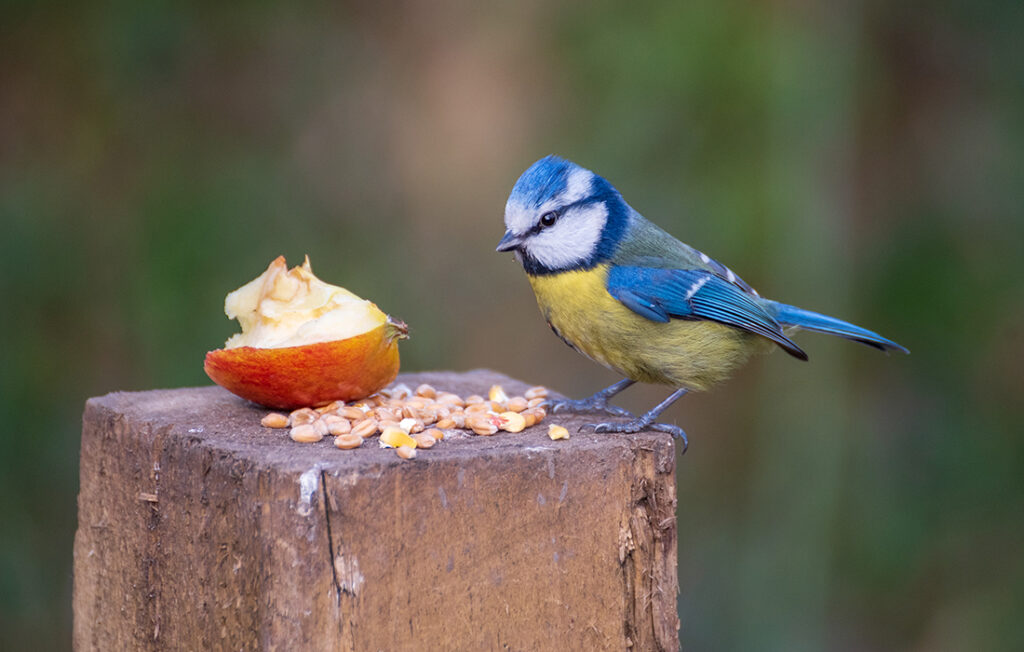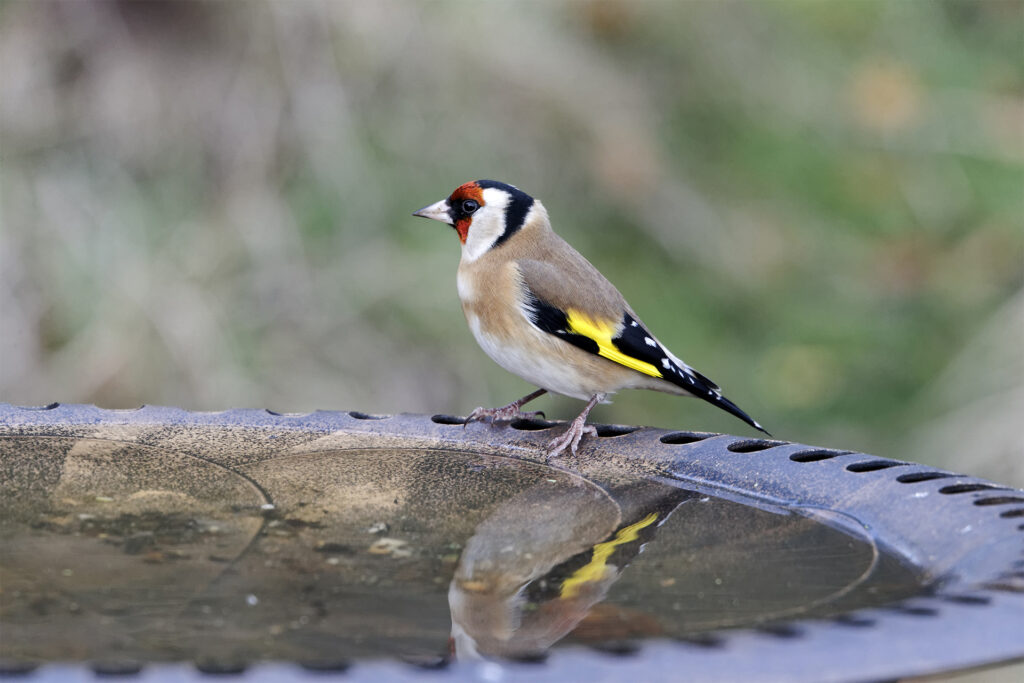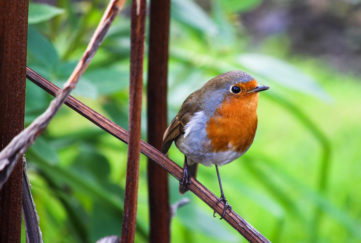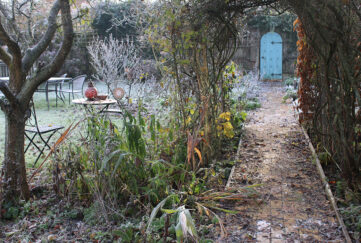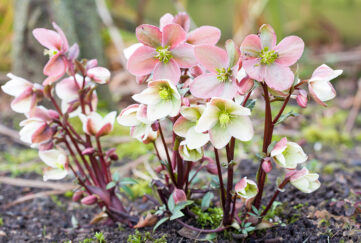Put On A Winter Feast For Birds!
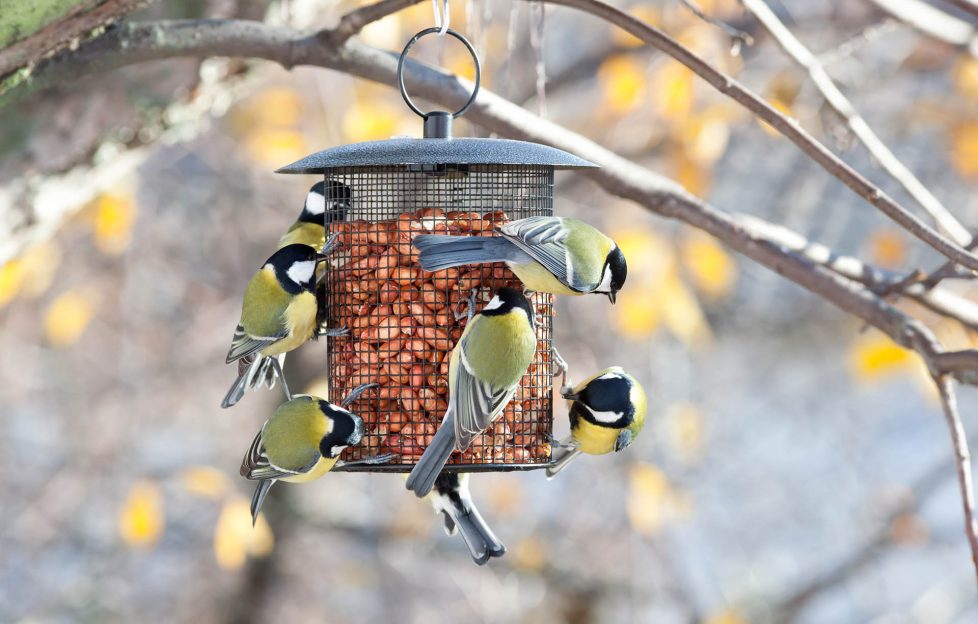
Winter can be a difficult time for our feathered friends, so why not take extra care of them during the colder months?
Many of the foods we eat are also big hits with garden birds, especially during the colder months when there are fewer natural food sources available and they need extra calories to stay warm.
Try sprinkling some of these treats on your bird table and see what turns up. Maybe a local robin, or a swirl of starlings?
You may even be lucky enough to see a winter migrant bird, such as a redwing, sampling your offerings.
Food your garden birds will love this winter
Don’t throw away your leftover food, take a look at these suggestions for items your garden birds will enjoy.
- Cheese – mild, grated cheese is a classic hit with robins, dunnocks, blackbirds and song thrushes.
- Unsalted bacon rind – chopping it up means a lot of birds will be able to have a nibble. Magpies and crows are liable to fly off with the whole piece if not! Make sure there’s no salt in it as it is toxic to birds.
- Ripe or bruised apples and pears – thrushes, tits and starlings are big fans.
- Pastry – uncooked or cooked, either is good as long as it’s made with real fats.
- Dried fruit – raisins, sultanas and currants are favourites with blackbirds, song thrushes and robins. (Warning: dried fruit can be dangerous to dogs and cats so this is one to avoid if you have pets in the area).
Add some ready-bought bird food, too!
Another great option is packaged food. Sparrows, tits and finches, for example, will all visit feeders containing nuts, fat or seed mixtures.
The insect-eaters, such as dunnocks, robins, starlings and wrens, prefer mealworms, while suet-based products are an all-round crowd-pleaser. Their high calories provide a boost for your birds through cold nights.
Food NOT to put out for the birds
Not everything we eat is good for birds, however. Here are some foods to avoid.
- Anything with salt – salt is toxic to birds, so make sure to keep it off your bird table and don’t put salt in your bird baths to keep it ice-free.
- Cooking fat – leftover fat from your Sunday roast could smear onto birds’ feathers and ruin their waterproofing and insulating qualities.
- Cooked porridge oats – oats are glutinous and can harden around a bird’s beak.
- Milk – birds can’t digest milk, it can make them seriously ill.
- Dried coconut – it can swell up in their stomach and make them sick.
Leave out water for drinking and bathing
Water is key for birds, both to drink and to clean their feathers so they’re in tip-top condition to fly and keep themselves warm.
Birds can find it harder to find water in the winter, however, as ponds start to freeze. They’ll always appreciate a bird bath – even a dustbin lid with some stones at the bottom for grip will do the job!
If you find the water keeps freezing, try floating a ping pong ball on the surface – the slightest gust of wind will keep the ball moving and stop the water turning to ice.
RSPB’s Big Garden Birdwatch
You can also help the birds in your neighbourhood by taking part in the Big Garden Birdwatch. Every year for the past four decades the RSPB has asked people to look out their window or head to their local park and let us know what birds they see over the course of an hour. This year it’s taking place from January 26-28, 2024.
This helps the charity to keep track of how garden birds are faring, and last year a record-breaking one million people joined in.
Find out how you can take part in the Big Garden Birdwatch now.

